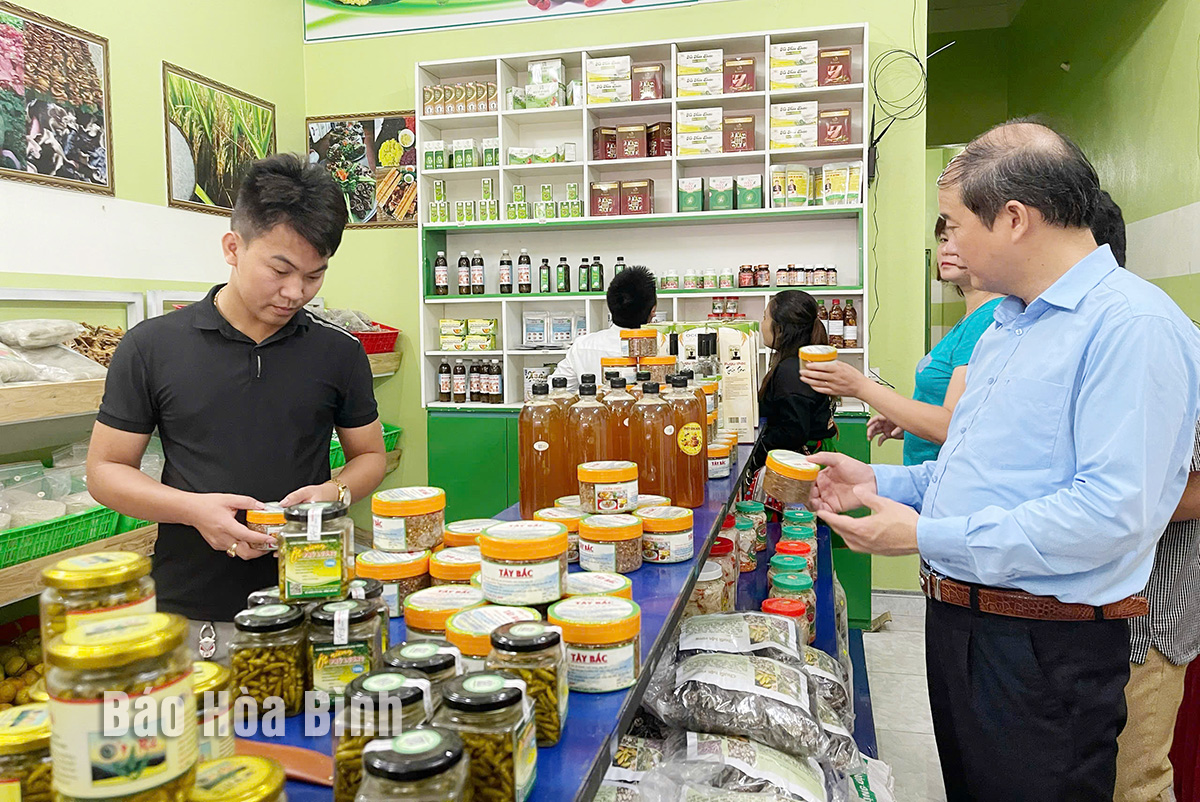
Over the past years, Da Bac district has effectively put in place the "One Commune-One Product” (OCOP) programme, thus raising the value of key agricultural products as well as income of local residents.
Tam Cuong safe agricultural product and food store in Da Bac town.
The district has regarded the development and standardisation of OCOP items as crucial to promoting production, building brands, and improving product quality.
It is home to six OCOP products, including Truc Son rice wine in Cao Son commune, indigenous pig and hill chicken in Tan Minh commune, and Da River black carp and catfish in Tien Phong commune.
The OCOP programme has contributed to economic restructuring, increasing income, and stabilising the livelihoods of rural residents, said Bui Khac Vinh, head of the district Bureau of Agriculture and Rural Development.
The official, however, pointed to obstacles to the implementation such as the hesitancy of local producers, along with issues regarding their eligibility for the programme as most of the production and business facilities have yet been registered.
Vinh said Da Bac aims to have at least six OCOP items rated at least three stars in the 2021-2025 period.
It will focus on standardising and developing products based on local resources, particularly specialties, establishing material areas, expanding production scale, participating in value and food safety chains, and encouraging businesses to upgrade product rankings.
In Lac Thuy district, communes have been succeeded in promoting their One Commune-One Product (OCOP) products while others are still struggling to position their typical farming products in market. Some communes in the district still fail to have their products met OCOP programme’s requirements, while others have seen their certifications expired.
The inspectorate agency of Hoa Binh province has issued Official Dispatch No. 1090/TTr-PCTN to provincial departments, agencies, localities, business associations, enterprises, and investors regarding measures to improve informal component indexes of the Provincial Competitiveness Index (PCI).
Hoa Binh is taking concrete steps to improve its investment environment, with a strong focus on supporting businesses, settling obstacles for strategic investors, and creating opportunities for robust development in the coming years.
Under the blazing early summer sun, the construction site of Nhuan Trach Industrial Park (IP) in Luong Son district is abuzz with activities from dawn to dusk, a testament to the determination of the investor to meet their construction targets on schedule.



